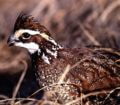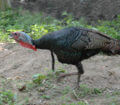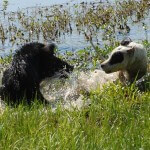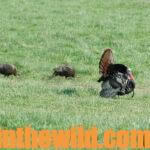Editor’s Note: My longtime friend, Preston Pittman of Pickens, Mississippi, one of the nation’s top competitive turkey callers, has won five turkey-calling championships. Not only is Pittman a contest winner, Preston Pittman actually becomes the turkey when hunting. On a “David Letterman Show” several years ago, Pittman strutted and gobbled and preened himself just like a wild turkey would. According to Pittman, if you’re hoping to take turkeys in the spring, you must observe turkey body language with your binoculars and use that knowledge to become the turkey.
 Question: Preston, how important are your binoculars to you when you’re hunting a turkey like this?
Question: Preston, how important are your binoculars to you when you’re hunting a turkey like this?
Pittman: They are absolutely critical. You have to realize that a turkey can see 10 times better than you can see, and he can probably hear 10 times better than you can hear. So, the great equalizer is a quality pair of binoculars. One of the great secrets to consistently take wild turkeys is to be able to read the turkey’s body language. You need to see the gobbler before he spots you, and you also need to be able to see what effects different calls have on the turkey. If you call to a turkey, and you look at him, and he’s not paying attention, then either he hasn’t heard you, or you aren’t saying what he wants to hear, the way he wants to hear it. So, you’ll know you need to call louder, use a different call or change the type of calls that you’re using.
Too, you need to use binoculars to see which way the turkey’s going. The easiest gobbler to call to you is a tom that’s coming to you, whether you call him or not. So, if a turkey is walking away from you, and you know you won’t get a chance to take that turkey, use your binoculars to see where the turkey is going. If you study the terrain between you and the turkey, you can determine when and how you should move to reposition yourself. Then the turkey will walk to you instead of away from you.
 A quality pair of binoculars will tell you too whether the turkey has hens with him, which often makes him more difficult to call, or if he has jakes (1-year-old gobblers) with him. If a long-bearded gobbler has three or four jakes with him, and they all hear a hen yelping, the jakes will run the gobbler away from the hen, so that he won’t be able to breed her. Without quality binoculars, you can’t study the body language of a gobbler and determine what you need to do to get that tom to come to you, so you can take him. If you’re going to hunt turkeys, then you’ve got to have great binoculars.
A quality pair of binoculars will tell you too whether the turkey has hens with him, which often makes him more difficult to call, or if he has jakes (1-year-old gobblers) with him. If a long-bearded gobbler has three or four jakes with him, and they all hear a hen yelping, the jakes will run the gobbler away from the hen, so that he won’t be able to breed her. Without quality binoculars, you can’t study the body language of a gobbler and determine what you need to do to get that tom to come to you, so you can take him. If you’re going to hunt turkeys, then you’ve got to have great binoculars.
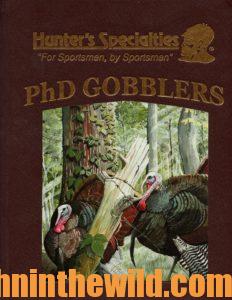
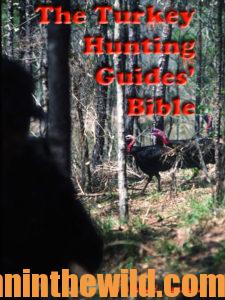 To learn more about turkey hunting, check out John E. Phillips’s books, “PhD Gobblers,” available in Kindle and print at http://amzn.to/XYTKnW, and “The Turkey Hunting Guides’ Bible,” available from Audible at https://www.audible.com/pd/B07L14HS5J/?source_code=AUDFPWS0223189MWT-BK-ACX0-135445&ref=acx_bty_BK_ACX0_135445_rh_us in Kindle and print at https://www.amazon.com/Turkey-Hunting-Guides-Bible-ebook/dp/B01ITWYY2K
To learn more about turkey hunting, check out John E. Phillips’s books, “PhD Gobblers,” available in Kindle and print at http://amzn.to/XYTKnW, and “The Turkey Hunting Guides’ Bible,” available from Audible at https://www.audible.com/pd/B07L14HS5J/?source_code=AUDFPWS0223189MWT-BK-ACX0-135445&ref=acx_bty_BK_ACX0_135445_rh_us in Kindle and print at https://www.amazon.com/Turkey-Hunting-Guides-Bible-ebook/dp/B01ITWYY2K

